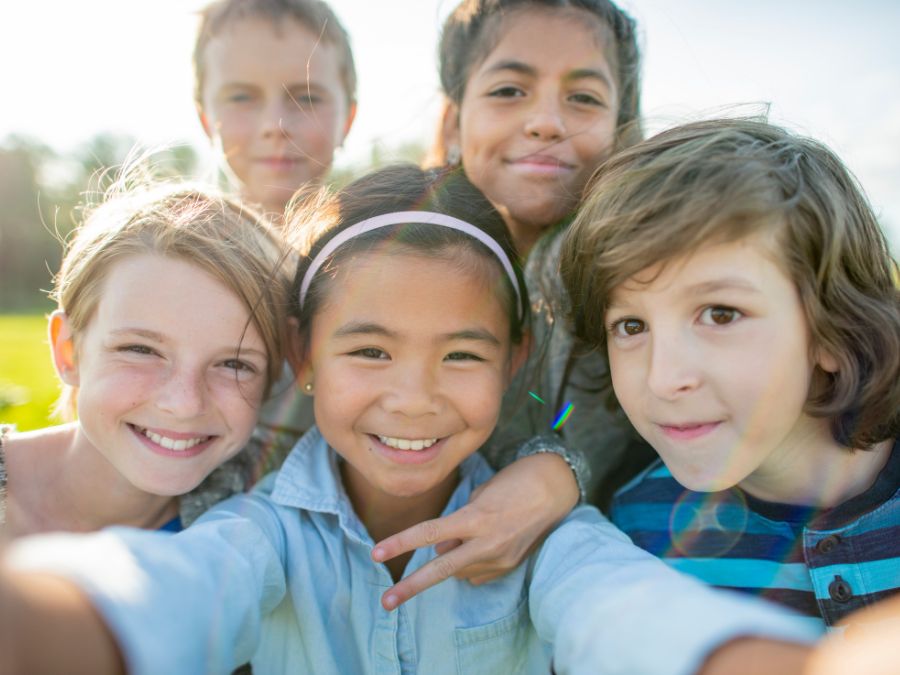
Proscribing community through relationships, service, purpose, and love
“…community is a powerful source of life satisfaction and life expectancy. It’s where we know each other, help each other, and find purpose in contributing to each other’s lives.” -Surgeon General Vivek Murthy
On January 7, Surgeon General Vivek Murthy shared his Parting Prescription for America. In this letter, Dr. Murthy shares what he has learned over his six years as the 19th and 21st Surgeon General of the United States. He prescribes for people to have more community and connection in their lives, not only for our mental health but also our physical health. He shares pivotal moments from his childhood where his parents instilled the value of community through helping friends and caring for others who have experienced illness or difficulties. Giving back and being there for others gave Dr. Murthy a sense of purpose and gratification.
Through conversations with people around the country, Dr. Murthy determines a need for community. He heard from people that something was missing in their lives. Dr. Murthy recalls one man who won the lottery. The person now had plenty of money but lacked a reason to get up in the morning. He did not have anyone to share the winnings with. In this country, our attention often centers around fame, wealth, and power – values that can drive away a sense of meaningful community.
To address the need for community, Dr. Murthy shares three core elements: relationships, service, and purpose, and one core virtue: love.
Building community through the HOPE Framework
It can feel impossible to change a country’s values and culture. But, change is possible with Dr. Murthy’s three core elements and the core virtue of love. As an educator inspiring the next generation, a doctor caring for patients, a community coalition acting on large-scale initiatives, or anywhere in between or adjacent, you can and are making a difference toward positive change.
You are moving progress forward.
Creating a better sense of community takes a village, and the HOPE framework is a concrete way for all to achieve this. The framework centers on promoting key types of positive childhood experiences (PCEs) – we call the Four Building Blocks of HOPE – that all children need to thrive. The HOPE framework places the power of the positive front and center and helps individuals, communities, and organizations see what is going well in everyone’s lives.
Creating action using the Four Building Blocks of HOPE
The Four Building Blocks of HOPE mirror Dr. Murthy’s core elements of relationship, service, and purpose. These Building Blocks are:
- Safe and supportive relationships
- Safe, equitable, and stable environments
- Opportunities for social and civic engagement
- Opportunities for emotional growth
These key types of PCEs help children build community and connections with adults and other children, build resilience and healthy child development, and provide a sense of purpose, fulfillment, and belonging.
Through promoting the Building Blocks, communities, organizations, and individuals have an actionable framework to spread the value of community and service to the next generations. Below are examples pulled from Dr. Murthy’s letter, showing how the Building Blocks are a natural fit to help push these changes forward.
Relationships
Individual level: “Building our relationships with one another requires the commitment to make social connection a priority and the courage to be vulnerable and real with each other. … We can start by reaching out to people we care about each day and prioritizing time for regular connection even if it is brief. We can create technology free zones in our lives to focus our attention when we are with others, enhancing the quality of our interactions.”
Organizational level: “We can design workplace cultures and practices that foster social connection.”
Policy level: “…history tells us consistently of the power of love. Love helped sustain and guide Reverend Martin Luther King, Jr., John Lewis, and other leaders in the 1960s through their long struggle against injustice as they fought for civil rights.”
Environment
Individual level: “… expanding our circle of concern to people who may differ in background and beliefs but who are still part of our community—our neighbors, our coworkers and classmates, the families at our local schools, members of our local faith groups, and the many people in our neighborhoods whose lives and work touch our own.”
Organizational level: “To live a life of purpose should not be the privilege of a few, but an opportunity for all that we help each other nurture. It’s why building the skills and tools to cultivate purpose is essential and should be a part of how we teach and support children as they grow in schools, families, and communities.”
Policy level: “We can invest in building social infrastructure—the programs, policies, and physical elements like libraries and community spaces that allow people to come together and form social connections in their neighborhoods.”
Engagement
Individual level: “We can commit to one act of kindness each day such as dropping off food to a friend who is overwhelmed, checking on a work colleague who is having a difficult day, or welcoming a new neighbor to the community, to name a few.”
Organizational level: “Plan intentional days for staff to volunteer in the community you serve. We can create opportunities in our schools and workplaces to make service something we do together and part of our learning and work cultures.”
Policy level: “We can invest in state and national service programs for younger and older generations to serve communities across America. We can even make these kinds of service programs universal expectations so we all have the opportunity at some point in our lives to serve a community side-by-side with our fellow Americans.”
Emotional Growth
Individual level: “…lifting up stories of purpose in our culture through music, movies, books, sermons, media, and more is so important—it helps people see purpose that’s rooted in contributing to others as inspiring, fulfilling, and the norm.”
Organizational level: “…do more in schools to help kids develop skills for building healthy relationships and dialogue. We can’t take it for granted that everyone is born with the skills to foster and maintain friendships— they need to be cultivated with intention and care from the earliest of ages.”
Policy level: “Leading with love means seeing love as a virtue to cultivate in ourselves, to encourage in our families, to infuse in our workplaces, schools, and halls of government, to insist on in our leaders, and to shape our public conversation. A community grounded in love is a community that will stand.”
Get started on the HOPE framework
There are many ways to start your journey with the HOPE Framework. Learn more through our weekly blog posts and our growing research on PCEs and HOPE.
Looking for training and technical assistance? You can start by scheduling a facilitated training or complete one of our self-paced online courses. Most of our courses offer continuing education credits (CME/CEUs) upon completion.
If you are looking to make an impact in your organization or community you can take one of our certificate programs and become a certified HOPE Facilitator and Champion or become a HOPE-informed organization through our organizational certificate.


